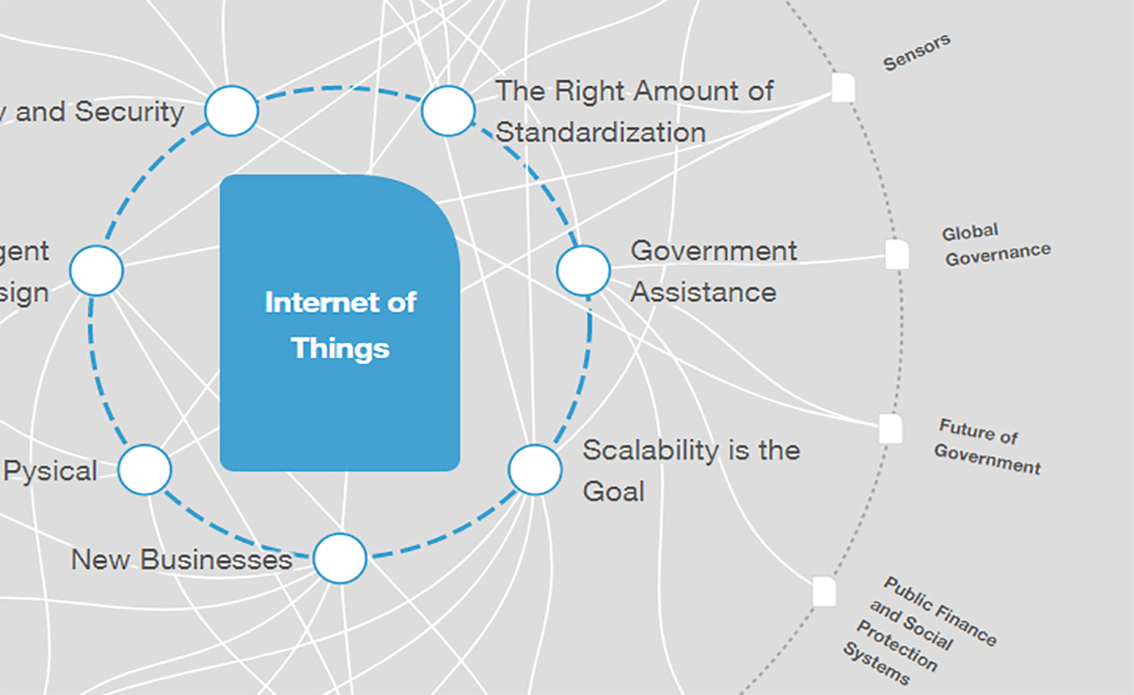Our Alliance is creating smart city governance

The Smart Cities Alliance is seeking additional cities and organizations to become pioneers in smart city governance. Image: Getty Images
- Data gathered using IoT technologies is helping cities combat crime, and reduce pollution.
- The G20 Global Smart Cities Alliance is establishing global policy norms for data collection and use, transparency, and public trust.
- As of May 2022, the Alliance is leading smart city governance initiatives in more than 36 cities around the world.
The impact on protecting citizens in smart cities.
Led by the World Economic Forum, the G20 Global Smart Cities Alliance on Technology Governance is the largest global initiative aiming at ensuring responsible and ethical use of smart city technologies.
It is developing, testing, and implementing global standards and policies to ensure that data collected in public places is used safely and ethically, mitigate potential risks and foster public trust.
Representing more than 200,000 cities and local governments, companies, start-ups, research institutions and non-profit organizations, the Alliance is leading numerous initiatives in more than 36 pioneer cities around the world focusing on smart city governance through mobility, administration, infrastructure, energy, as well as cultural and creative industries.
Istanbul, Kampala, Milan and Newcastle, for example, are sponsoring the Dig Once initiative to ensure that digital infrastructures are integrated into construction projects, speeding up their installation and reducing inconvenience for citizens.
Mexico City and Milan are increasing their cyber accountability to ensure transparency and build citizens confidence on cybersecurity measures taken by the public administration.
Apeldoorn, Bogota and Istanbul are implementing new Privacy Impact Assessment models to ensure citizens’ personal data are protected and processed securely.
What's the challenge in the way of smart city governance?
To support their booming urban populations, many cities are coming to rely on the internet of things (IoT)—that is, the world’s ever-expanding network of connected devices—to collect, share and analyse real-time data on urban environments. The data gathered using IoT technologies is helping cities combat crime, reduce pollution, decrease traffic congestion, improve disaster preparedness and more. However, it is also raising growing concerns about privacy and security.
Without proper governance, these smart city technologies pose significant challenges. But despite the growing number of smart cities around the world, no global framework exists for regulating how data should be collected in public spaces (e.g. by traffic cameras or Wi-Fi hotspots) and subsequently used.
Our approach to smart city governance.
World leaders announced the launch of the Global Smart Cities Alliance on Technology Governance at the 2019 G20 Summit in Osaka, Japan. As the International Organization for Public-Private Cooperation, the World Economic Forum was selected to be the secretariat of the G20 Global Smart Cities Alliance.
"Cities are the solution-makers and testbeds of the future. Only by creating a joint trust-based framework can we realize the full potential of smart city technologies for the benefit of all mankind in the future."
”The Smart Cities Alliance is establishing global policy norms for data collection and use, transparency and public trust, and best practices in smart city governance. It is bringing together governments, private-sector partners and civil society organisations to co-design, pilot and scale up innovative policy solutions that help cities responsibly implement IoT technologies.
Experts from more than 50 global organisations have been collaborating through the Alliance to develop a first-of-its-kind global policy roadmap on smart city technologies.
The pioneer cities that have been adopting the roadmap and guiding its development towards smart city governance are: Apeldoorn, The Netherlands; Barcelona, Spain; Belfast, UK; Bengaluru, India; Bilbao; Spain; Buenos Aires, Argentina; Bogota, Colombia; Brasilia, Brazil; Chattanooga, USA; Cordoba, Argentina; Daegu, South Korea; Dallas, USA; Dubai, UAE; eThekwini, South Africa; Faridabad, India; Gaziantep, Türkiye; Hamamatsu, Japan; Hyderabad, India; Indore, India; Istanbul, Türkiye; Kampala, Uganda; Kaga, Japan; Kakogawa, Japan; Karlsruhe, Germany; Leeds, UK; Lisbon, Portugal; London, UK; Maebashi, Japan; Manila, Philippines; Medellin, Colombia; Melbourne, Australia; Mexico City, Mexico; Milan, Italy; Muscat, Oman; Newcastle, Australia; Pittsburgh, USA; San Jose, USA, Tampere, Finland and Toronto, Canada.
"Local and regional governments will need to ensure the application of technology promotes human rights through equitable public service provision; putting our communities and planet first. The G20 Smart Cities Alliance is an important mechanism to help facilitate this transformation, bringing together a critical network of partners to collectively address and mitigate future crises.”
”Alongside the global policy roadmap, the Smart Cities Alliance is also providing support to cities at the local level, by creating regional and national alliances that can adapt global policy models and connect cities with local experts and with each other. Starting with a city community based in Japan, the Alliance has created additional networks in India and Latin America.
As of May 2022 the Alliance is supporting more than 80 cities to adopt smart city governance. In view of this success, the Alliance is planning to launch more networks in Asia, the Middle-East and Africa.
The achievements of this initiative were recognised by the Smart City Expo World Congress with the Governance and Economy Award in 2021.
The founding partners of the G20 Global Smart Cities Alliance on Technology Governance include: Japan and the Kingdom of Saudi Arabia; the World Economic Forum, Smart Cities Mission of India, Cities for All, Cities Today Institute, Commonwealth Local Government Forum, Commonwealth Sustainable Cities Network, Connected Places Catapult, Digital Future Society, ICLEI – Local Governments for Sustainability, International Telecommunication Union, National League of Cities, Open and Agile Smart Cities, Smart City Expo World Congress, United Cities and Local Governments, What Works Cities and World Enabled.
How can you get involved?
The Global Smart Cities Alliance on Technology Governance is led by the Forum’s Centre for Urban Transformation.
The Alliance is welcoming cities and organizations to become partners in smart city governance. If you are interested in joining the Alliance or in supporting our regional networks, contact us.
Stay up to date:
Internet of Things
Partners:
Forum Stories newsletter
Bringing you weekly curated insights and analysis on the global issues that matter.








